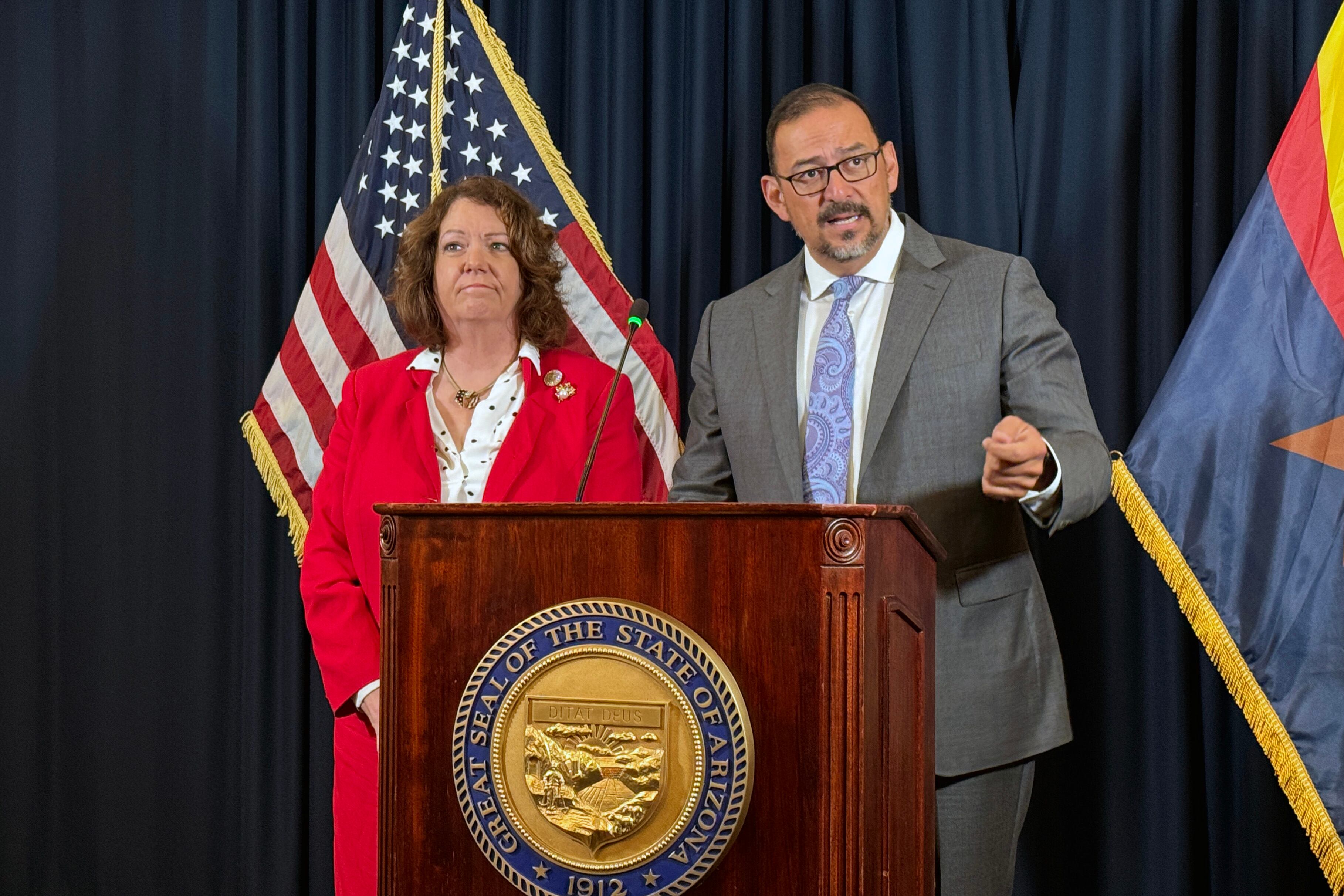Votebeat is a nonprofit news organization reporting on voting access and election administration across the U.S. Sign up for Votebeat Arizona’s free newsletter here.
Arizona Secretary of State Adrian Fontes exceeded his authority in several instances when making changes to the state’s election manual last year, a Maricopa County Superior Court judge ruled Thursday.
The state will now be blocked from enforcing these particular rules, including one that would have allowed the secretary of state to finalize statewide election results without the results of a county, if the county failed to certify its results by the deadline. That rule had already been suspended by a federal judge in a separate case challenging Fontes’ manual. That challenge was filed in July in federal court by the Trump-aligned America First Policy Institute.
“Nothing in the statutes permits the Secretary to exclude a particular county’s canvass and/or, by extension, disenfranchise the entirety of the county’s voters,” Superior Court Judge Scott Blaney wrote.
Fontes’ Elections Procedures Manual was approved in December 2023 by Gov. Katie Hobbs and Attorney General Kris Mayes. Republican legislative leaders sued, alleging that the rule about excluding a county’s results and others violated state law. It was that suit that prompted Blaney’s ruling.
Blaney also voided other rules in the manual. These include:
- A rule that explains the authority of county supervisors when certifying election results.
- A rule telling county recorders that, if they receive notice from a jury questionnaire that a voter is not a citizen, they may place the voter’s registration in inactive status. Under state law, the recorder must instead cancel their registration.
- A footnote that relieves petition circulators of their responsibility in state law to properly list their address and contact information when applying to the secretary of state to act as a circulator.
Blaney found in favor of Fontes, though, regarding a line explaining the timing for a new state law that requires county recorders to remove voters from the state’s early voting list if they don’t vote by mail in two election cycles. The first removals must occur in 2027, not 2025, Blaney ruled.
Fontes is closely reviewing the ruling, and his office will discuss soon whether to appeal it, a spokesperson for the office said.
Senate President Warren Petersen said in a statement that Republican leaders are disappointed about the judge’s decision on the timing of removing voters from the early voting list, “but everything else was a big win.”
“We will continue to do all we can to secure our elections and boost voter confidence,” Petersen wrote.
This lawsuit is one of several legal challenges filed this year in response to the 2023 manual. They are all still pending, in federal and state appeals courts.
The federal judge considering the case from the America First Policy Institute, as well as a Maricopa County Superior Court judge considering a separate lawsuit from the Arizona Free Enterprise Club, also temporarily halted enforcement of new rules on what constitutes voter intimidation. The cases on that matter are still pending.
The Free Enterprise Club case also challenged the rule on jury questionnaires, as well as other rules.
A separate lawsuit filed by the Republican National Committee and Republican Party of Arizona is still pending in the state’s appeals court. It argues, along with other claims, that the secretary did not provide adequate opportunity for public comment on the manual.
Jen Fifield is a reporter for Votebeat based in Arizona. Contact Jen at jfifield@votebeat.org.



